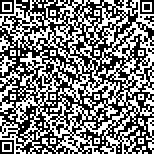陈颖,姚春雨,李娟,等.低频重复经颅磁刺激对学龄前孤独症谱系障碍儿童执行功能及核心症状的影响[J].中华物理医学与康复杂志,2022,44(6):514-518
扫码阅读全文

|
| 低频重复经颅磁刺激对学龄前孤独症谱系障碍儿童执行功能及核心症状的影响 |
|
| |
| DOI:10.3760/cma.j.issn.0254-1424.2022.06.007 |
| 中文关键词: 重复经颅磁刺激 孤独症谱系障碍 学龄前儿童 执行功能 核心症状 |
| 英文关键词: Transcranial magnetic stimulation Autism Preschool children Executive functioning |
| 基金项目: |
|
| 摘要点击次数: 4880 |
| 全文下载次数: 5408 |
| 中文摘要: |
| 目的 观察低频重复经颅磁刺激(rTMS)对学龄前孤独症谱系障碍(ASD)儿童执行功能及核心症状的影响。 方法 采用随机数字表法将43例学龄前ASD患儿分为rTMS组(21例)及对照组(22例),2组患儿均给予常规康复训练(包括日常项目训练及基本生活技能训练),rTMS组在此基础上辅以1 Hz低频rTMS治疗。于干预前、干预8周后分别采用学龄前儿童执行功能行为量表(BRIEF-P量表)、社会反映量表(SRS量表)、重复行为量表-修订版(RBS-R)及儿童孤独症评定量表(CARS量表)对2组患儿疗效情况进行评定。 结果 干预8周后2组患儿BRIEF-P总分、SRS评分、RBS-R评分及CARS评分均较治疗前明显改善(P<0.05),并且rTMS组BRIEF-P总分、SRS评分、RBS-R评分及CARS评分[分别为(95.70±17.82)分、(79.20±11.11)分、(14.40±7.63)分和(32.63±4.52)分]亦显著优于对照组水平(P<0.05);干预后2组患儿BRIEF-P抑制因子、组织计划因子、抑制自我控制指数、元认知指数评分及rTMS组BRIEF-P情感控制因子、工作记忆因子和认知灵活性指数评分均较治疗前明显改善(P<0.05),并且rTMS组抑制因子、情感控制因子、工作记忆因子、抑制自我调控指数、认知灵活性指数及元认知指数评分[分别为(24.10±5.55)分、(14.60±3.25)分、(21.80±4.18)分、(38.70±8.26)分、(33.30±6.19)分及(38.30±7.18)分]亦显著优于对照组水平(P<0.05)。 结论 在常规康复干预基础上辅以低频rTMS治疗可有效改善学龄前ASD儿童执行功能障碍及核心症状,对减轻ASD患儿病情程度具有重要作用。 |
| 英文摘要: |
| Objective To explore the effect of low-frequency repetitive transcranial magnetic stimulation (rTMS) on the executive functioning and core symptoms of preschool children on the autism spectrum. Methods Forty-three preschool children showing signs of autism were randomly divided into an rTMS group of 21 and a control group of 22. In addition to routine rehabilitation and training in basic living skills, the rTMS group was additionally provided with 1Hz rTMS for 8 weeks. Before and after the treatment, both groups were evaluated using the preschool version of the Behavior Rating Inventory for Executive Function (BRIEF-P), the Social Responsiveness Scale (SRS), the revised version of the Repetitive Behavior Scale (RBS-R) and the Child Autism Rating Scale (CARS). Results After the 8 weeks of treatment, the average BRIEF-P, SRS, RBS-R and CARS scores of both groups had improved significantly, but the rTMS group′s averages where then significantly better than those of the control group. Conclusions Low-frequency rTMS in addition to conventional rehabilitation intervention can significantly improve the executive functioning and core symptoms of preschool children on the autism spectrum. |
|
查看全文
查看/发表评论 下载PDF阅读器 |
| 关闭 |